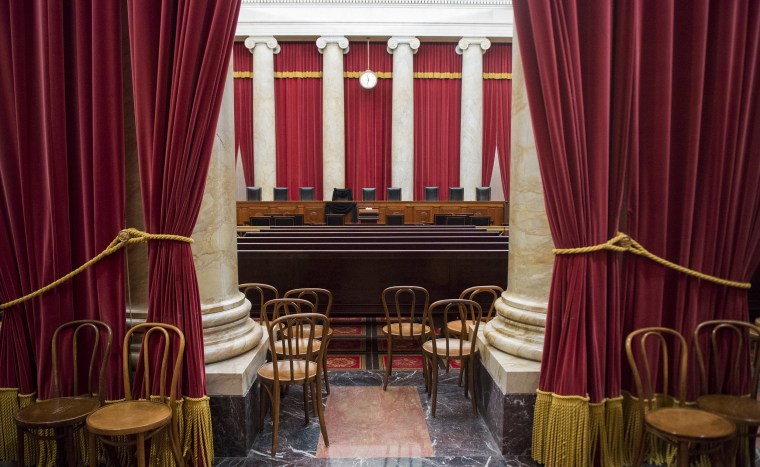For those keeping up with the Supreme Court, most of today's news will focus on the Affordable Care Act ruling, and for good reason. The health security of tens of millions of American families was on the line, and the justices' decision is an important development.
But another one of this year's most closely watched cases was also handed down this morning, and while much of the left was likely pleased with the ACA ruling, they'll be far less pleased with this one.
The U.S. Supreme Court ruled Thursday that the city of Philadelphia went too far in imposing its anti-discrimination law on a Catholic charity that refused to consider same-sex parents eligible to adopt foster children.
In this case, Philadelphia city officials contracted with local non-profit organizations to provide screening services for prospective foster parents. In 2018, however, the Philadelphia Inquirer reported that Catholic Social Services had a policy against placing children with same-sex couples. Officials, unwilling to be a party to discrimination, scrapped a contract with the Catholic charity, saying its policy violated local civil-rights ordinances.
CSS said that no same-sex couples had applied with the group to be foster parents, and if they had, Catholic Social Services would refer them to some other contractor. A lawsuit soon followed, with CSS claiming that the group deserved a religious liberty exemption from the city's anti-discrimination laws. In Fulton v. Philadelphia, the justices agreed.
It was, oddly enough, a unanimous ruling. That said, it could've been worse.
As NBC News' report noted, Catholic Social Services -- and many of its conservative allies -- hoped for "a broad ruling that would allow religious objections to overcome anti-discrimination laws." They didn't get one: "[I]t was narrowly confined to the facts of this case and is therefore unlikely to have a nationwide impact."
A Politico report added that this did not sit well with some of the high court's conservative majority. Justices Samuel Alito, Neil Gorsuch, and Clarence Thomas "complained bitterly that the majority's analysis was tortured and amounted to dodging the main issue in the case about when government can burden the religious views of those through whom it provides services."
The trio "also excoriated their colleagues for failing to issue a more sweeping decision overturning a two-decade-old precedent that the Constitution allows the government to enforce broad-based rules even if they severely impinge on religious beliefs."
I don't imagine we've heard the last word from this conservative court on the subject.

